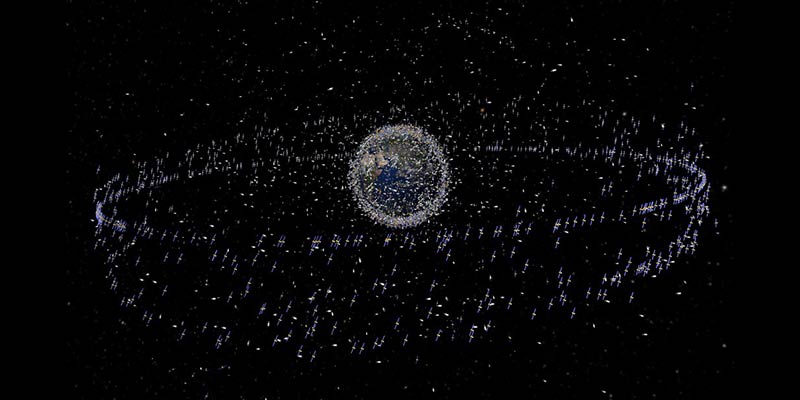- World
- Apr 25
Russia vetoes resolution for prevention of arms race in outer space
Russia vetoed a United Nations Security Council resolution that called on countries to prevent an arms race in outer space.
The draft resolution was put to a vote by the United States and Japan after nearly six weeks of negotiations. It received 13 votes in favour, while China abstained and Russia cast a veto.
Why US & Japan drafted this resolution?
• During the 1960s and 1970s, several multilateral agreements were adopted to prevent the weaponisation of outer space in relation to nuclear weapons and other weapons of mass destruction (WMD).
• These agreements include the Partial Test Ban Treaty (1963), the Outer Space Treaty (1967), and the Moon Agreement (1979).
• The Outer Space Treaty prohibits states parties from placing nuclear weapons or any other WMD in orbit, on celestial bodies, or stationing them in outer space in any other manner.
• In February this year, the US accused Russia of developing space-based capabilities to attack satellites using nuclear weapons.
• US Permanent Representative to the UN Linda Thomas-Greenfield stressed that “any placement of nuclear weapons into orbit around the Earth would be unprecedented, dangerous and unacceptable”.
• She announced that the US and Japan had put forward a draft resolution reaffirming state parties’ obligations under Article IV of the Outer Space Treaty.
• Russia has denied the US allegations.
• The 1967 Outer Space Treaty bars signatories — including Russia and the United States — from placing in orbit around the Earth any objects carrying nuclear weapons or any other kinds of weapons of mass destruction.
• The defeated draft resolution said “the prevention of an arms race in outer space would avert a grave danger for international peace and security”.
• It would have urged all countries carrying out activities in exploring and using outer space to comply with international law and the UN Charter.
• Also by the draft, the Council would have called on all nations “to refrain from actions contrary to that objective and to the relevant existing treaties in the interest of maintaining international peace and security and promoting international cooperation”.
The Outer Space Treaty
• The creation of a special regime for outer space and celestial bodies was necessitated by the commencement of space activities with the launch of the first artificial satellites of the Earth under an international scientific programme, the International Geophysical Year (1957-1958), and the rapid development of rocket technology during that period.
• The Treaty on Principles Governing the Activities of States in the Exploration and Use of Outer Space, Including the Moon and Other Celestial Bodies, which is usually called the Outer Space Treaty, is one of the most significant law-making treaties concluded in the second half of the 20th century.
• It was adopted by the United Nations General Assembly on December 19, 1966, opened for signature at London, Moscow and Washington on January 27, 1967, and entered into force on October 10, 1967.
• The Outer Space Treaty laid down the foundations of international regulation of space activities and thus established the framework of the present legal regime of outer space and celestial bodies.
• Over 100 countries are parties to the treaty.
• India signed the treaty in March 1967 and ratified it in 1982.
The Outer Space Treaty provides the basic framework on international space law, including the following principles:
i) The exploration and use of outer space shall be carried out for the benefit and in the interests of all countries and shall be the province of all mankind.
ii) Outer space shall be free for exploration and use by all States.
iii) Outer space is not subject to national appropriation by claim of sovereignty, by means of use or occupation, or by any other means.
iv) States shall not place nuclear weapons or other weapons of mass destruction in orbit or on celestial bodies or station them in outer space in any other manner.
v) The Moon and other celestial bodies shall be used exclusively for peaceful purposes.
vi) Astronauts shall be regarded as the envoys of mankind.
vii) States shall be responsible for national space activities whether carried out by governmental or non-governmental entities.
viii) States shall be liable for damage caused by their space objects.
ix) States shall avoid harmful contamination of space and celestial bodies.
Manorama Yearbook app is now available on Google Play Store and iOS App Store

